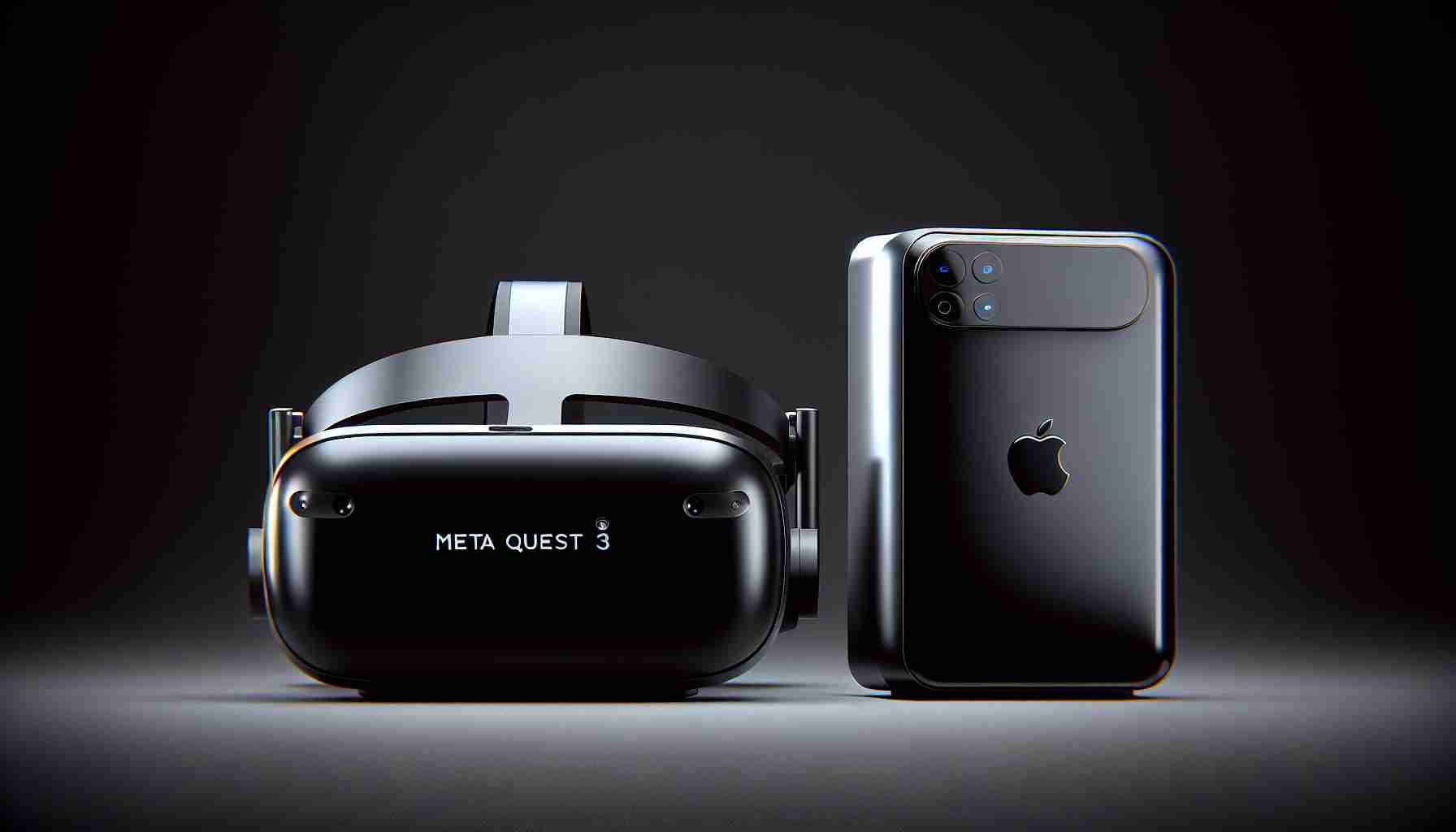The battle of the virtual reality giants is heating up, as tech enthusiasts around the world compare the Apple Vision Pro with the Meta Quest 3. Despite both headsets’ release, the price disparity is evident. Apple’s offering enters the market with a forward-thinking approach to spatial computing, while the Meta Quest 3 presents itself as a more budget-friendly introduction to extended reality (XR).
The Apple Vision Pro, equipped with a blend of top-tier components including the Apple R1 and M2 chips, sets the stage for what might be the gold standard in mixed reality experiences, boasting a robust 16GB of RAM and options of up to 1TB of storage. In contrast, the Meta Quest 3 stands as Meta’s finest creation to date—a more ergonomically considerate device that appeals to consumers looking for an immersive experience without the premium price.
Through extensive user feedback, it’s clear the Meta Quest 3 is admired for its combination of quality and affordability, with a significant majority expressing a preference for Meta’s device over Apple’s pricier offering. Even Meta’s own Mark Zuckerberg touts the Quest 3 as superior in value.
As we delve into the specifications of each headset, similarities surface despite their different market positioning. Both employ pancake lenses and promise about 2 to 3 hours of battery life, with Qualcomm’s Snapdragon XR2 Gen 2 processor powering the considerably lighter Quest 3.
From an aesthetic viewpoint, the Apple Vision Pro certainly captivates with its sleek, futuristic design, including a unique feature that allows users to project their eyes to onlookers. Nevertheless, practicality shines through with Meta Quest 3’s design, which focuses on comfort and weight distribution—crucial for prolonged use sessions.
Both devices make compelling cases, with Apple’s Vision Pro representing a leap toward sophisticated, high-end mixed reality environments, while the Meta Quest 3 offers a commendable balance of performance and accessibility, broadly securing its appeal to the everyday VR enthusiast.
Comparing Ecosystem and Content Availability
When discussing the Meta Quest 3 and Apple Vision Pro, it’s important to consider their respective ecosystems. Meta has an established VR platform with a wide range of available content through the Oculus Store. In contrast, the Apple Vision Pro is likely to integrate with the iOS ecosystem, offering potential access to a rich variety of apps through the App Store. This integration could also mean enhanced continuity with other Apple devices and services. However, the actual content availability for Apple Vision Pro would not be clear until its ecosystem is fully developed and made public.
Technological Innovations and Privacy Concerns
Another aspect to touch upon is the technology behind mixed reality experiences. Meta Quest 3’s Snapdragon XR2 Gen 2 processor is specialized for XR devices, and Meta has a history of releasing frequent software updates and feature enhancements. Apple, on the other hand, has the advantage of designing its hardware and software to work in tandem, often leading to optimized performance and a seamless user experience. The R1 and M2 chips in the Apple Vision Pro exemplify Apple’s commitment to pushing the technological envelope.
Privacy could be a key challenge or controversy with both devices, as mixed reality experiences require cameras and sensors that capture real-world data. Concerns have been raised about how companies handle sensitive data collected through VR headsets. Apple has a strong brand reputation regarding user privacy, which may give it an edge in this area.
Performance and Accessibility
In terms of advantages, the performance of the Apple Vision Pro, powered by powerful proprietary chips and potentially incorporating features like advanced hand tracking, could offer a leap forward in technology. However, the Meta Quest 3, designed with focus on affordability and widespread adoption, could provide an ideal starting point for consumers new to VR and those on a budget.
The disadvantage of the Apple Vision Pro appears to be its prohibitive cost, potentially limiting its user base, while in the case of Meta Quest 3, lower pricing might mean compromising on certain premium features or build quality to keep the cost down.
For those wanting to explore further, here are related links to the main websites for both companies:
– Apple
– Meta (Formerly Facebook)
Please note that to obtain the latest information about either the Meta Quest 3 or the Apple Vision Pro, it’s essential to visit their official websites or read up-to-date news articles from reputable tech websites.
The source of the article is from the blog portaldoriograndense.com
